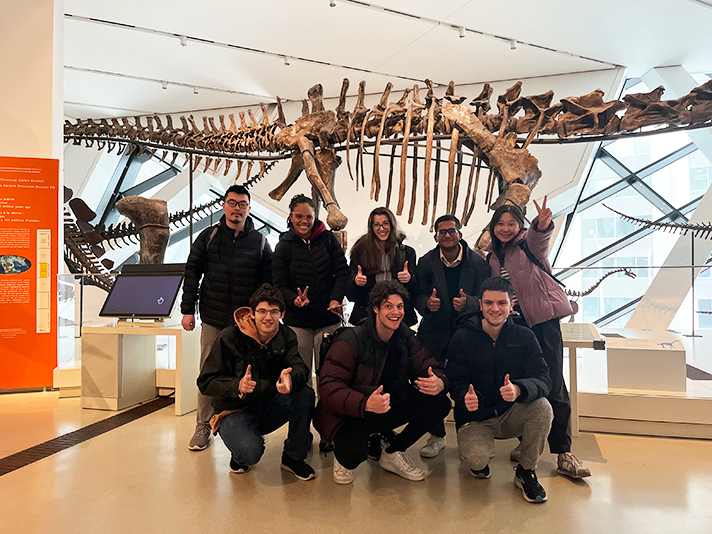Arts & Science students in first and second year can join learning communities to enrich their undergraduate experience. Learn more about First-Year Learning Communities or read below for Second-Year Learning Communities.
Plan for success in second year & beyond!
A second-year learning community (SLC or “slick”) brings together small groups of second-year students pursuing majors or specialists within the same department to explore their passions and build meaningful connections within their field.
With the support of faculty advisors, staff advisors and peer mentors, SLCs offer a unique opportunity for second-year students to find community, explore academic and career pathways, and build a sense of academic independence.
Programming includes:
- Academic skill development for second-year courses
- Connections to academic opportunities
- Field visits to workplaces in your academic discipline
- Networking with faculty and alumni from your department
- Access to ongoing guidance from upper-year peer mentors
SLCs are free, co-curricular opportunities available to students in select academic departments and programs at the Faculty of Arts & Science.
Why Join a Second-Year Learning Community?
SLCs provide the opportunity for you to:
- Build a strong academic and social network
- Benefit from the knowledge and support of peer mentors, faculty and staff advisors
- Engage in learning opportunities outside of the classroom and experience Toronto
- Learn from expert panels in your field
- Explore future career and graduate school options
- Develop competencies around intercultural communication and collaborative learning
What to Expect in a SLC
SLCs meet in person and on campus. You will meet biweekly for core sessions, beginning the first week of classes, with optional hangouts offered in the alternate weeks. Core sessions offer structured active learning engagement, while hangouts provide informal opportunities to build community and connect with your peers. When you attend 9 of the 12 SLC sessions and one hangout, you will receive a transcript notation indicating the successful completion of the SLC program.
SLCs do not count as course credit.
If you have any questions, contact the Student Success Programs team at SLC@utoronto.ca.
Discover Your SLC
SLCs are available to students entering a major or specialist in the following academic departments and programs:
FAQs
SLC activities are free for students enrolled in participating programs. Students can take advantage of all activities, including field trips, visits with industry experts and group meals at no cost.
Yes, you can still apply! Please note your intention to enrol in an eligible program during the second request period. Your acceptance into the SLC will be contingent upon your successful enrolment. If you have questions, contact ssp.artsci@utoronto.ca.
Third year students who are newly accepted into a program (and have not participated in SLC previously) can be considered for enrolment into a SLC and are encouraged to apply.
No, your peer mentors are not tutors. Peer mentors are upper-year students here to support you, share their experiences and facilitate your SLC sessions along with staff and faculty advisors.
I missed the deadline to apply to SLC. Is there another program I can join as a second-year student?
Yes. Recognized Study Groups (RSG) are student-led study groups of up to eight classmates enrolled in the same Faculty of Arts & Science course. RSGs are available to help you make friends in your courses, better understand course material, prepare for tests and exams, learn study skills and stay focused. You can apply to lead or join an RSG for one of your courses at the start of the term. You can also search for additional opportunities within your department or program.


